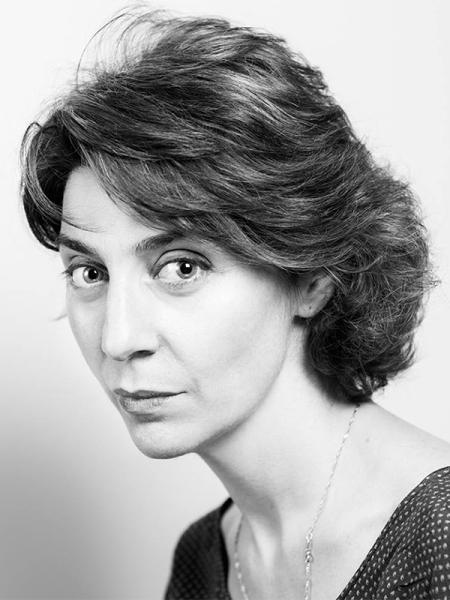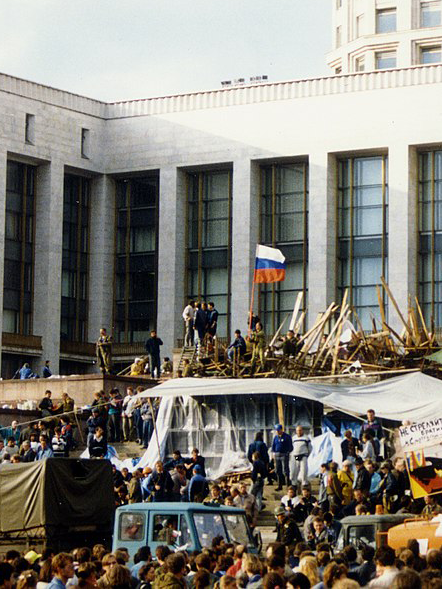At the start of the twentieth century, socialist revolution in the name of universal emancipation led to totalitarianism. More recently, an era of democratic transition has ended with dictatorship and neo-imperial war. Russia’s war in Ukraine has made it evident that what seemed to be a singular epochal event—the complete demise of the Soviet Union in 1991—was in fact a process that continues to unfold in the present day as catastrophe. The longevity of post-soviet Russian imperialism derives from its intertwining of colonial aspirations with the vestiges of state socialism and anti-capitalist rhetoric. In this lecture, Keti Chukhrov will examine the pathologies of post-Soviet subjectivity and will pose the question: can cultural universalism make it possible to resist and undermine empire in the twenty-first century? Following the lecture, Professor Kevin M. F. Platt will join Chukhrov for discussion.
Cosponsored by Penn's Department of Russian and East European Studies.
 Keti Chukhrov is a Russian philosopher, art theorist, and poet. She holds a PhD in Comparative Literature and a ScD in Philosophy. Most recently, Chukhrov was a guest professor at Karlsruhe University of Arts and Design in Germany. Previously, she worked in Moscow as a professor in the School of Philosophy & Сultural Studies at the Higher School of Economics, and as the head of the Theory and Research department at the National Center of Contemporary Art. From 2017–19, Chukhrov was a Marie Sklodowska Curie fellow at Wolverhampton University in the UK.
Keti Chukhrov is a Russian philosopher, art theorist, and poet. She holds a PhD in Comparative Literature and a ScD in Philosophy. Most recently, Chukhrov was a guest professor at Karlsruhe University of Arts and Design in Germany. Previously, she worked in Moscow as a professor in the School of Philosophy & Сultural Studies at the Higher School of Economics, and as the head of the Theory and Research department at the National Center of Contemporary Art. From 2017–19, Chukhrov was a Marie Sklodowska Curie fellow at Wolverhampton University in the UK.
Chukhrov has authored numerous texts on art theory and philosophy. Her latest book Practicing the Good: Desire and Boredom in Soviet Socialism (University of Minnesota Press, 2020) deals with the impact of socialist political economy on the epistemes of historical socialism. Her full-length books also include To Be—To Perform: ‘Theatre’ in Philosophic Critique of Art (European Un-ty, 2011), Pound &£ (Logos, 1999), and a volume of dramatic writing, Merely Humans (2010). She authored the film plays “Love-machines” (2013), “Communion”(2016), and “Undead” (2022); which were featured at the Bergen Assembly (2013), The Specters of Communism (James Gallery, NY, 2015), the Ljubljana Triennial U-3 (2016, cur. Z. Badovinac, B. Groys), and Steirischer Herbst 2019 and 2022.
 Kevin M. F. Platt is Professor of Russian and East European Studies at the University of Pennsylvania and Graduate Chair of the Program in Comparative Literature and Literary Theory. He has written or edited a number of books on history and memory in Russia and Eastern Europe, global Russophone and global socialist culture, and contemporary Russian and Eastern European poetry. His book Border Conditions: Russian-Speaking Latvians Between World Orders is forthcoming this fall. He next monograph is tentatively titled Cultural Arbitrage in the Age of Three Worlds: How Transnational Exchange Defined Cold War Cultures.
Kevin M. F. Platt is Professor of Russian and East European Studies at the University of Pennsylvania and Graduate Chair of the Program in Comparative Literature and Literary Theory. He has written or edited a number of books on history and memory in Russia and Eastern Europe, global Russophone and global socialist culture, and contemporary Russian and Eastern European poetry. His book Border Conditions: Russian-Speaking Latvians Between World Orders is forthcoming this fall. He next monograph is tentatively titled Cultural Arbitrage in the Age of Three Worlds: How Transnational Exchange Defined Cold War Cultures.



